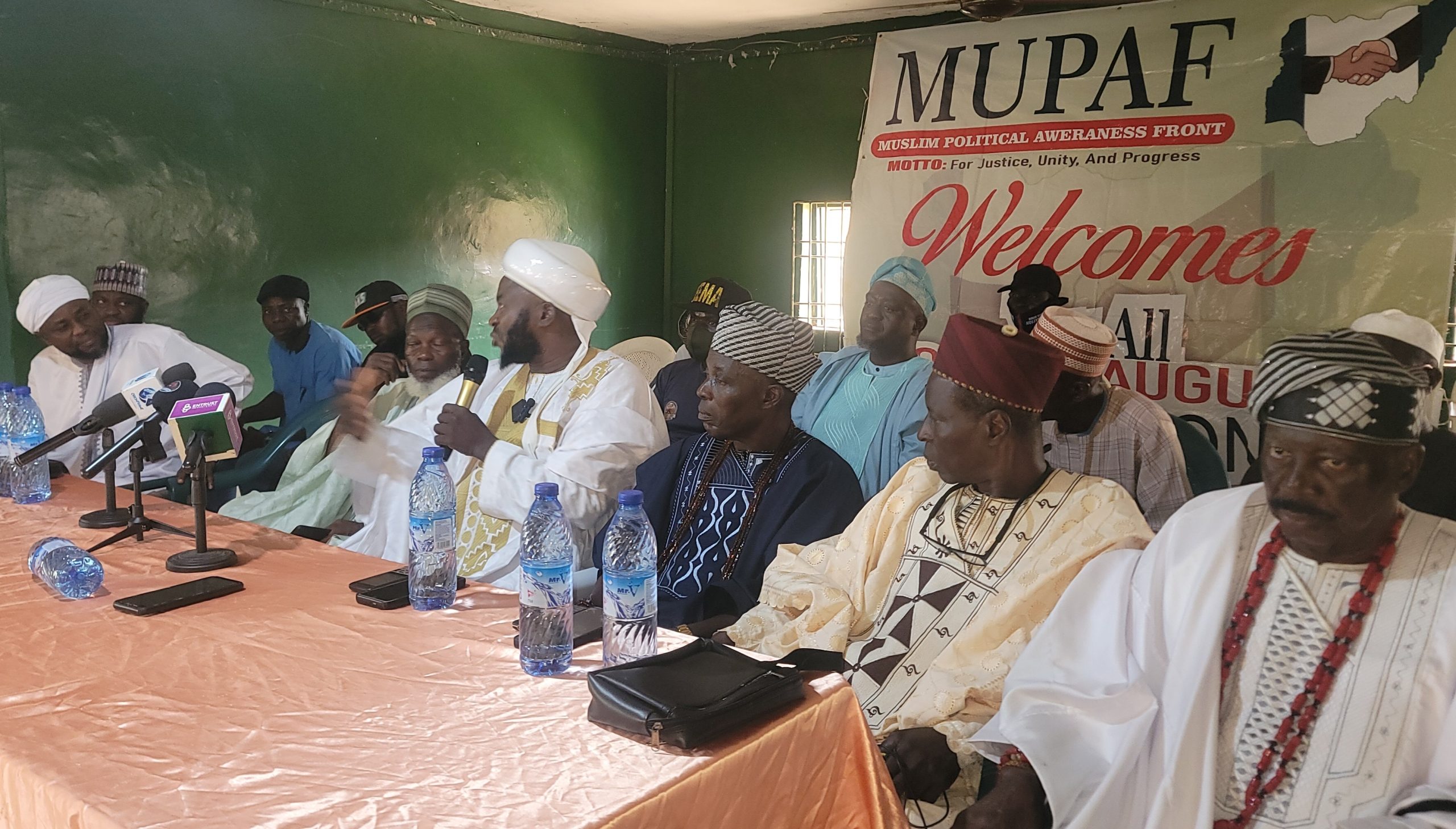A passionate call for unity among Muslims in Yorubaland has been made by the Grand Mufti of Yorubaland, Sheikh Dahood Imran Molaasan.
The Islamic leader who made the call at the Public Orientation programme organised by the Muslim Political Awareness Front (MUPAF) held at the Ansar-ud-Deen Event Hall, Sabo, Osogbo, Osun State on Saturday said the unity is important for political relevance, stressing that without cohesion, the muslim community will continue to remain politically disadvantaged.
Speaking at the gathering, Grand Mufti of Yorubaland lamented the lack of unity within the Muslim community in the southwest, saying “Yoruba Muslims are fragmented into numerous groups and led by leaders often plagued by apathy, leaving them politically vulnerable.
He contrasted this with the Christian community, citing the last presidential election where, in his words, “Christians unanimously voted for Peter Obi under the umbrella of the Christian Association of Nigeria (CAN).”
He described that bloc vote as an expression of unity and political consciousness that Yoruba Muslims currently lack.
Sheikh Dahood stressed the urgent need for a unifying institution that can serve as an umbrella for Yoruba Muslims, similar to the organizational strength seen among their northern counterparts. “This institution will not threaten existing ones but will strengthen us politically,” he said.
The Mufti warned that continued disunity would deepen political marginalization. “It is time to let go of internal rifts. What apathy will brew will be more complicated than internal cohesion. Without unity, we won’t be able to fight for our rightful place politically,” he urged.
Earlier, the leadership of MUPAF had called for active participation of Muslims in po politics for the benefit of Islam. This comes at a time when political debates in Osun and across the southwest are increasingly tilting towards religious and ethnic considerations, raising fresh questions about representation, equity, and the future of political participation in the region.

